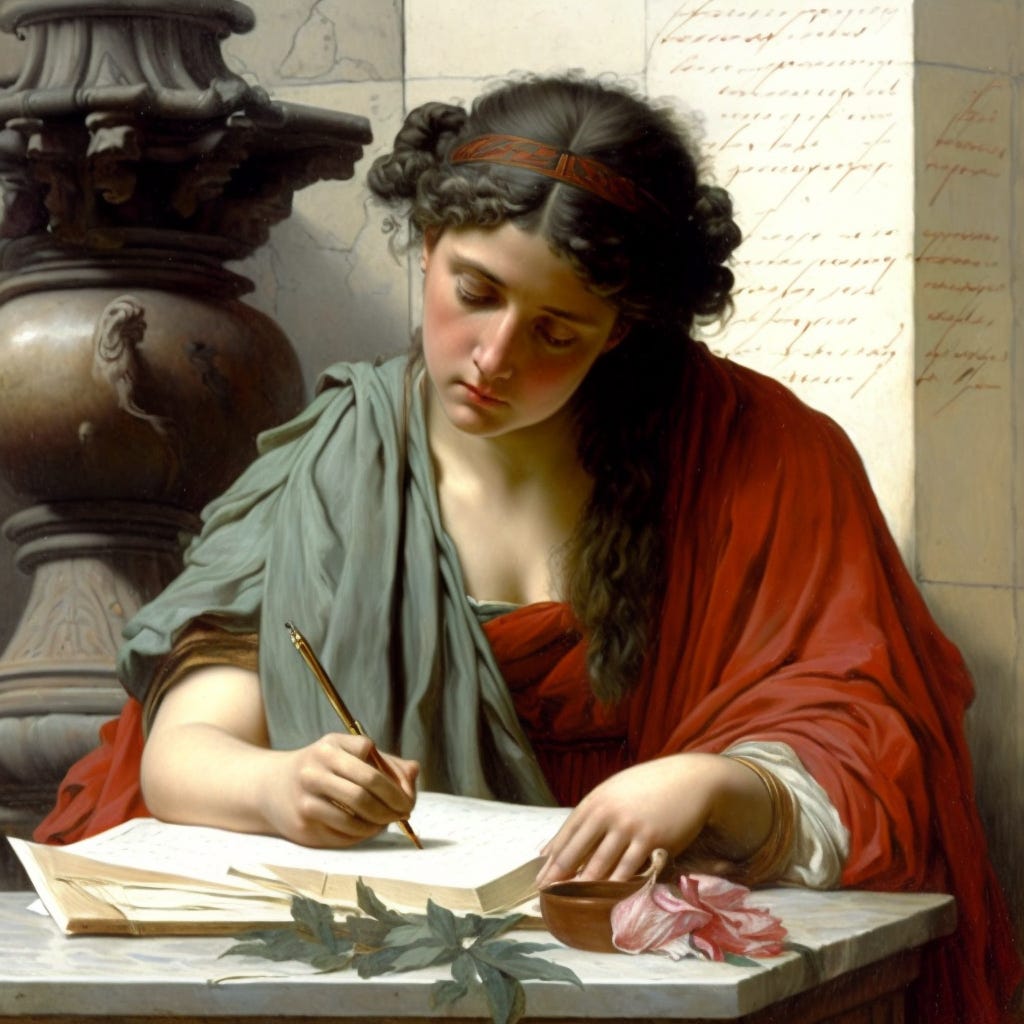Sulpicia, the chosen one | Women Poets
The Latin poetess that history has chosen to pass down despite the skepticism of many critics.
Female Voices - Women Writers to Remember
by Alessia Pizzi
N.3 - March 2023
In the common imagination, "the chosen one" evokes both the big and small screen, between demon-children and blonde and athletic vampire slayers. In Sulpicia's case, the story is a bit sadder because it highlights the loneliness of a poetess in ancient Rome, but above all it highlights the difficulty of critics to recognize this woman's literary talent.
The only poetess of Ancient Rome
The third book of the Tibullian Corpus includes the poems of Sulpicia, the niece of Messalla, the famous patron. We are in the 1st century BC and the Latin elegy makes the poet a servant of love chasing after an unfaithful woman. Sulpicia overturns the roles: she is the one who suffers because Cerinto (the pseudonym of the loved one) betrays her. Her six elegies speak of love and everyday life and are the only testimony of female Latin poetry.
From these elegies derives the absurd possibility that men can also be unreliable, as also affirmed by the chorus of Euripides' Medea: that's why Sulpicia's poetry is so interesting.
At last love has come, a passion that rumour would make more shameful
for me to have hidden than to have uncovered to anyone.
Cytherean Venus, won over by my Muses,
has brought him and placed him in my embrace.
Venus has answered my prayer; let anyone trumpet my joys instead,
if they are not said have a love of their own.
I would not want to entrust anything to sealed letters,
so that nobody can read it before my man.
No, I rejoice in my boldness, as keeping a downcast stare
tires me out; may I be said to have been worthy of a worthy man.
Sulpicia is torn between passion and modesty: the society of the time demanded that women be modest, but the passion that is told in the elegy is so strong as to be brazen.
In my high school literature book it says that these poems cannot be by a woman because there are none other in that historical period: yet, as early as the 90s, scholars studied Sulpicia's poetry closely, affirming that it was the work of a woman. Feminists, on the other hand, have been less kind: I think of Pomeroy, who states that she studies Sulpicia only because “she is a woman”.
My light, may you not love me any more
the way I think you did a few days since,
if I have ever in my youthful life
done anything as stupid as I did
yesterday, when I left you all alone
because I didn't want to show my love.
Video
In the video you can set English subtitles, they are automatic but I think you get the point :)
Original source: Poetesse Donne: Sulpicia




